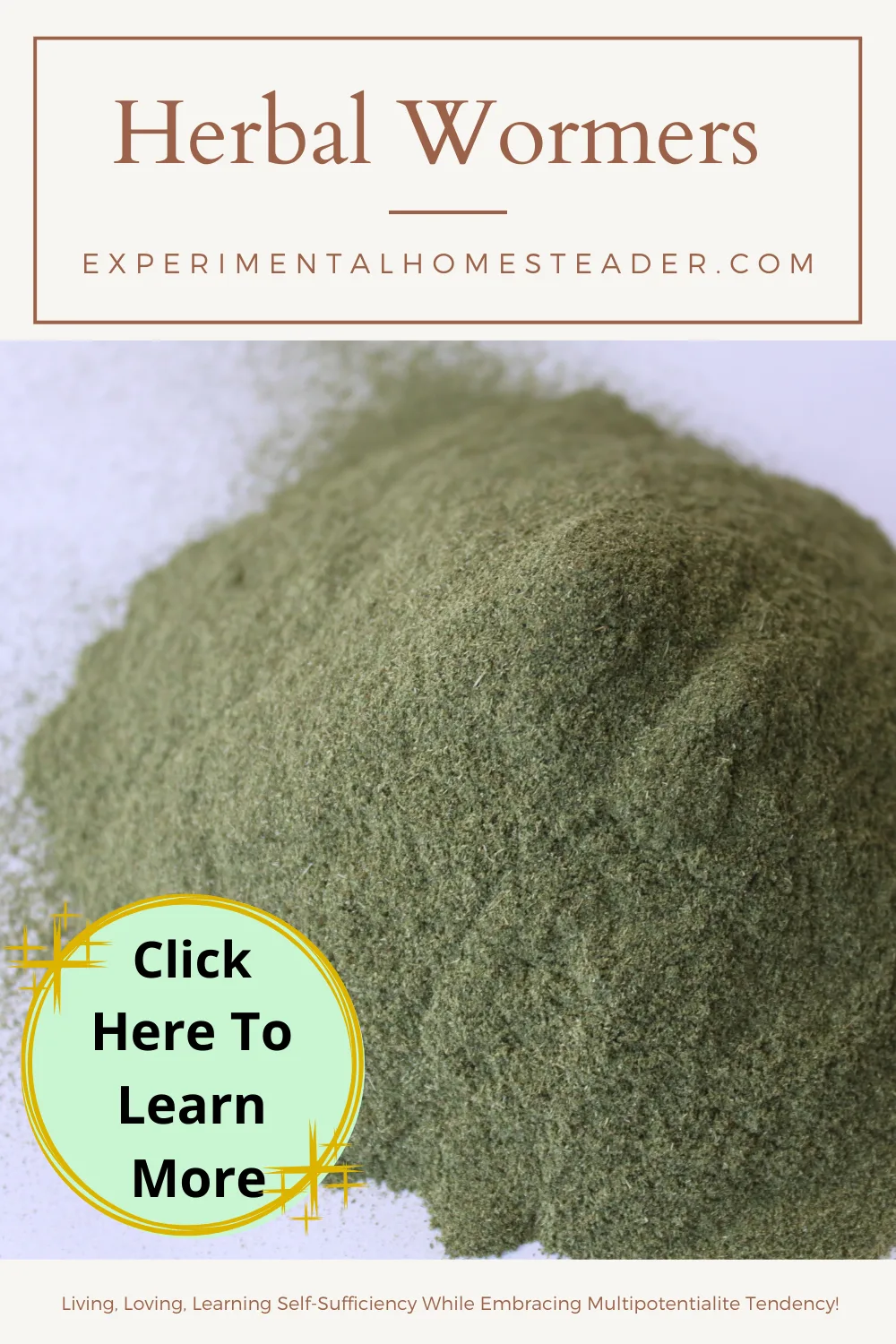There are a number of herbal wormers on the market. Depending on the animal and the situation, sometimes it is necessary to use chemical-based wormers to eradicate the problem and then switch immediately to an herbal wormer to keep the problem under control. The reason for this is because herbal or natural wormers do not work as fast as the chemical-based wormers do. If the problem is serious, there is no point of fooling around and risking the life of your animal.

Talk with your vet about your plans to use herbal wormers. If possible, print out a list of what is in the herbal wormer and any instructions that pertain to the brand you wish to use. Just like with people, there are changes of drug interactions occurring if the wormers are used too close together. This is why seeking the advice of your vet is recommended – after all if something should go wrong, such as an allergy to one of the ingredients, your vet will already know what you gave your animal, how much you gave and the frequency of the dose. This information may save your pets life.
When we chose to use herbal wormers on our pets the first step was to research the various companies out there. I wanted one with a good reputation. I decided to use a company called Molly's Herbals. I really liked that there was a lot of factual information on her website concerning her tests with both conventional and herbal wormers. My animals were already on conventional wormers when they came here to live and for approximately three years after. I had regular feces scans and used both DE and Kelp first. I added a little bit of both into their food dish and also offered it free choice. Once the worm population was under control, I started making the switch to the herbal wormer. I followed the directions carefully, kept a close eye on the fecal samples and within six months was completely done with conventional wormers. It was the best decision I ever made.

At first my goats were a little unsure of the herbs but after a few weeks they seemed to start to enjoy them. We just use the syringe method with the younger ones but with the older ones eventually we could just sprinkle it on their food and they would lick their dishes clean. In the beginning however I did use the syringe method on the older ones too just to make sure they did get the full dose.
Managing worms and other parasites in animals does require a lot more than just a wormer - conventional or herbal. A clean, dry pen and pasture area, sanitary milking area for dairy animals, fresh, clean water and food are all essential. It is a good idea to use a mature rotation system as well. Letting poultry run during the day with your animals is another great way to help control parasites in pasture areas where larger livestock graze.




